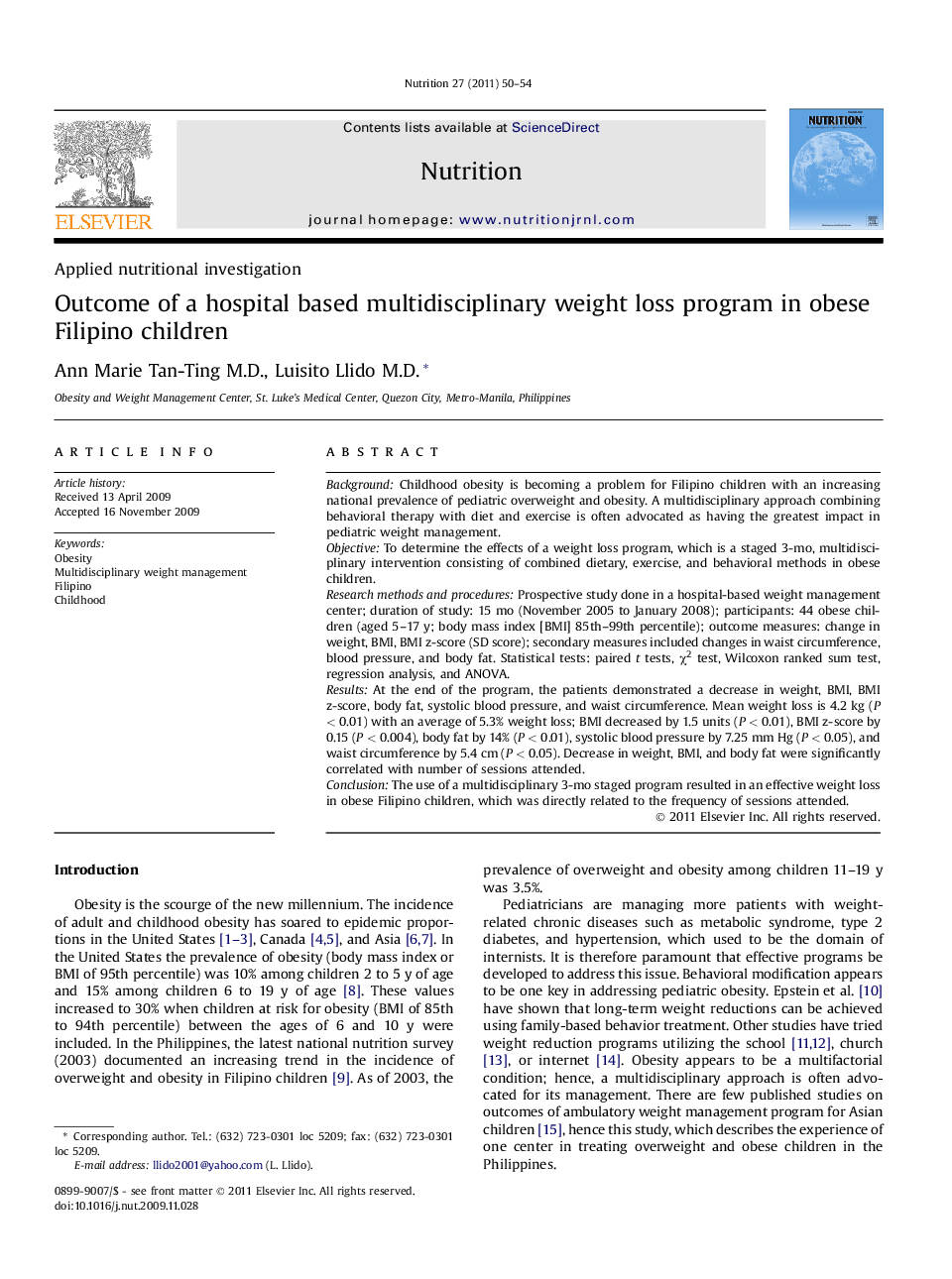| Article ID | Journal | Published Year | Pages | File Type |
|---|---|---|---|---|
| 3276756 | Nutrition | 2011 | 5 Pages |
BackgroundChildhood obesity is becoming a problem for Filipino children with an increasing national prevalence of pediatric overweight and obesity. A multidisciplinary approach combining behavioral therapy with diet and exercise is often advocated as having the greatest impact in pediatric weight management.ObjectiveTo determine the effects of a weight loss program, which is a staged 3-mo, multidisciplinary intervention consisting of combined dietary, exercise, and behavioral methods in obese children.Research methods and proceduresProspective study done in a hospital-based weight management center; duration of study: 15 mo (November 2005 to January 2008); participants: 44 obese children (aged 5–17 y; body mass index [BMI] 85th–99th percentile); outcome measures: change in weight, BMI, BMI z-score (SD score); secondary measures included changes in waist circumference, blood pressure, and body fat. Statistical tests: paired t tests, χ2 test, Wilcoxon ranked sum test, regression analysis, and ANOVA.ResultsAt the end of the program, the patients demonstrated a decrease in weight, BMI, BMI z-score, body fat, systolic blood pressure, and waist circumference. Mean weight loss is 4.2 kg (P < 0.01) with an average of 5.3% weight loss; BMI decreased by 1.5 units (P < 0.01), BMI z-score by 0.15 (P < 0.004), body fat by 14% (P < 0.01), systolic blood pressure by 7.25 mm Hg (P < 0.05), and waist circumference by 5.4 cm (P < 0.05). Decrease in weight, BMI, and body fat were significantly correlated with number of sessions attended.ConclusionThe use of a multidisciplinary 3-mo staged program resulted in an effective weight loss in obese Filipino children, which was directly related to the frequency of sessions attended.
